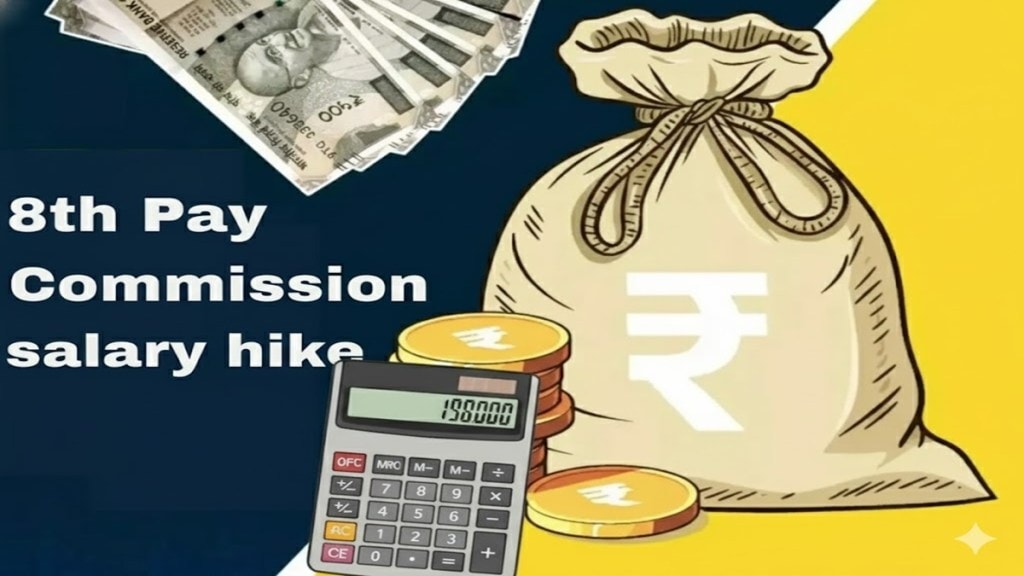After almost 10 months of waiting for about 1.2 crore central government employees and pensioners, the Modi government has finally approved the Terms of Reference (ToR) for the 8th Central Pay Commission (CPC). With this, the government has also announced the names of three panel members, including the chairperson.
The Justice Ranjana Desai-led pay panel has been tasked with reviewing the pay structure, allowances and pensions of central government employees and retirees. The Commission has to submit its report to the government within 18 months. The implementation of new pay scales is expected to be completed by late 2027 or early 2028, but will be effective retrospectively from January 1, 2026.
Now that the ToR has been finalised and members appointed, this marks the actual beginning of the crucial exercise of salary and pension revision of employees and pensioners. There are around 47 lakh central government employees and nearly 68 lakh pensioners who will directly benefit from the pay panel recommendations.
Though the panel will have the ToR, approved recently by the Cabinet, guiding in making decisions but there will be several external factors like key economic indicators that will primarily drive the panel’s decision about salary and pension hike suggestions in line with economic realities of the country.
Over the last more than seven decades, every pay panel has historically revised salaries and pensions significantly, factoring in the economic situation and the government’s fiscal capacity. The 8th Pay Commission will be doing the same while making suggestions to the government.
8th Pay Commission: 5 key economic factors that will decide salary and pension revision
Economic conditions and fiscal prudence: The Commission will evaluate India’s economic growth, inflation and fiscal health. A stable economy and manageable fiscal deficit give the government more room to offer a higher pay hike.
Availability of resources for development and welfare: The panel has its task cut out to balance between increasing government salaries and ensuring enough funds remain available for development projects and welfare schemes.
Cost burden of non-contributory pensions: The government still bears the full pension burden of employees covered under the old pension scheme. Those who joined central government job before 1st January 2004 are still getting their pension under the Old Pension Scheme (OPS). Besides, certain other department employees, including armed forces personnel, are still allowed to remain under the OPS. The Commission will need to weigh this unfunded liability carefully.
Impact on state government finances: Since most states, though not immediately, adopt Central Pay Commission recommendations, the 8th CPC will study how its proposals could affect the fiscal position of state governments.
Parity with PSU and private sector employees: The Commission will compare pay and perks of central government staff with those in public sector undertakings (PSUs) and private companies to ensure competitiveness and fairness.
Salary and allowance revisions for employees under previous pay panels: Past trends
Historically, each pay panel has brought a substantial increase in basic pay and rationalised other key allowances like HRA, dearness allowance (DA), and travel allowance.
For instance, the 7th Pay Commission had recommended a 2.57 times increase in basic pay, effective from January 2016. Since then, the DA has been hiked multiple times to offset inflation — currently standing at 58% of basic pay for central government employees.
The DA is revised twice a year — in January and July — based on the Consumer Price Index (CPI). Pensioners also receive Dearness Relief (DR) at the same rate. In recent years, the government has also restored DA/DR arrears and other benefits after periodic freezes during economic stress, such as the COVID-19 pandemic period.
Apart from DA, central employees enjoy several allowances — including HRA, medical benefits, transport allowance, leave travel concession (LTC) and gratuity — all of which are reviewed by every Pay Commission to align with inflation and cost of living.
Implementation timeline and expectations
Given that the 7th CPC’s recommendations were implemented in 2016 and each commission usually takes about two years to complete its work, the 8th CPC’s final report and recommendations are expected by late 2027 or early 2028. Once accepted, new pay scales are likely to take effect retrospectively from January 1, 2026.


